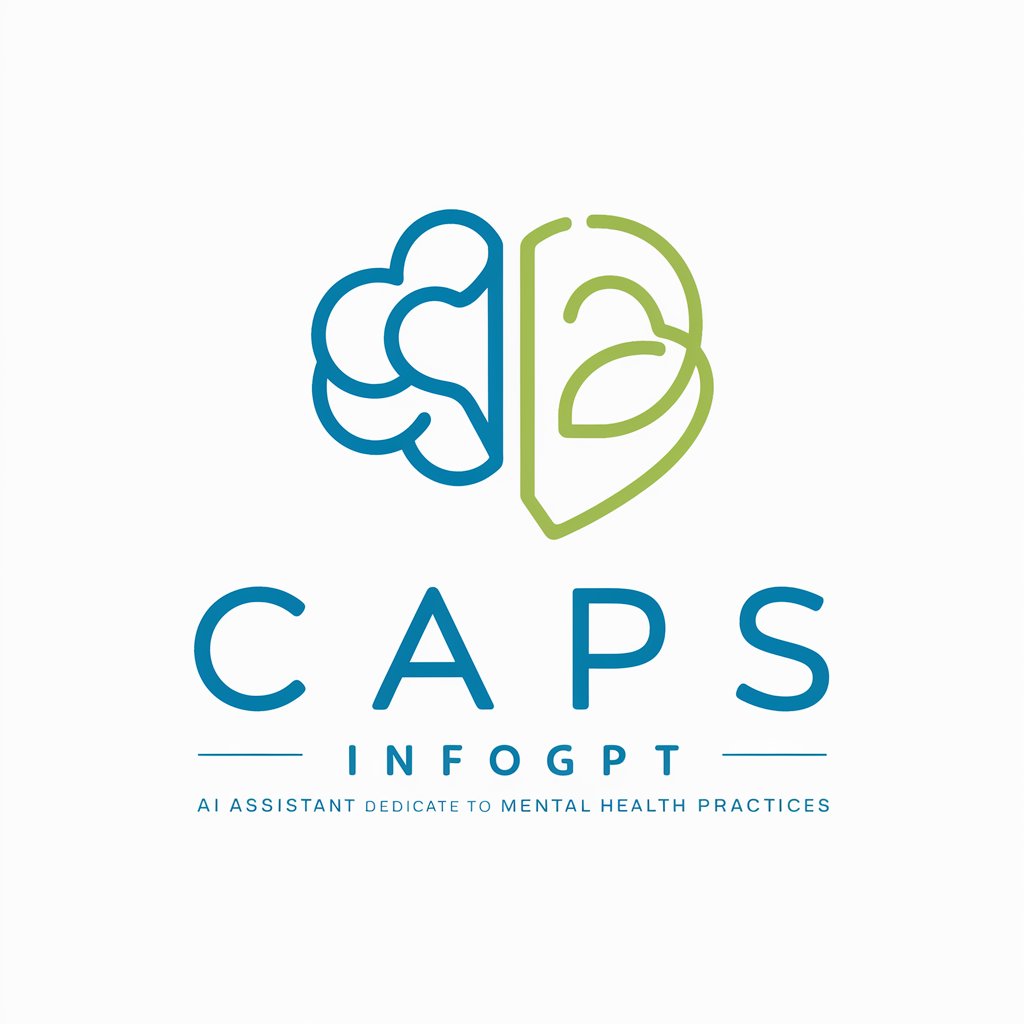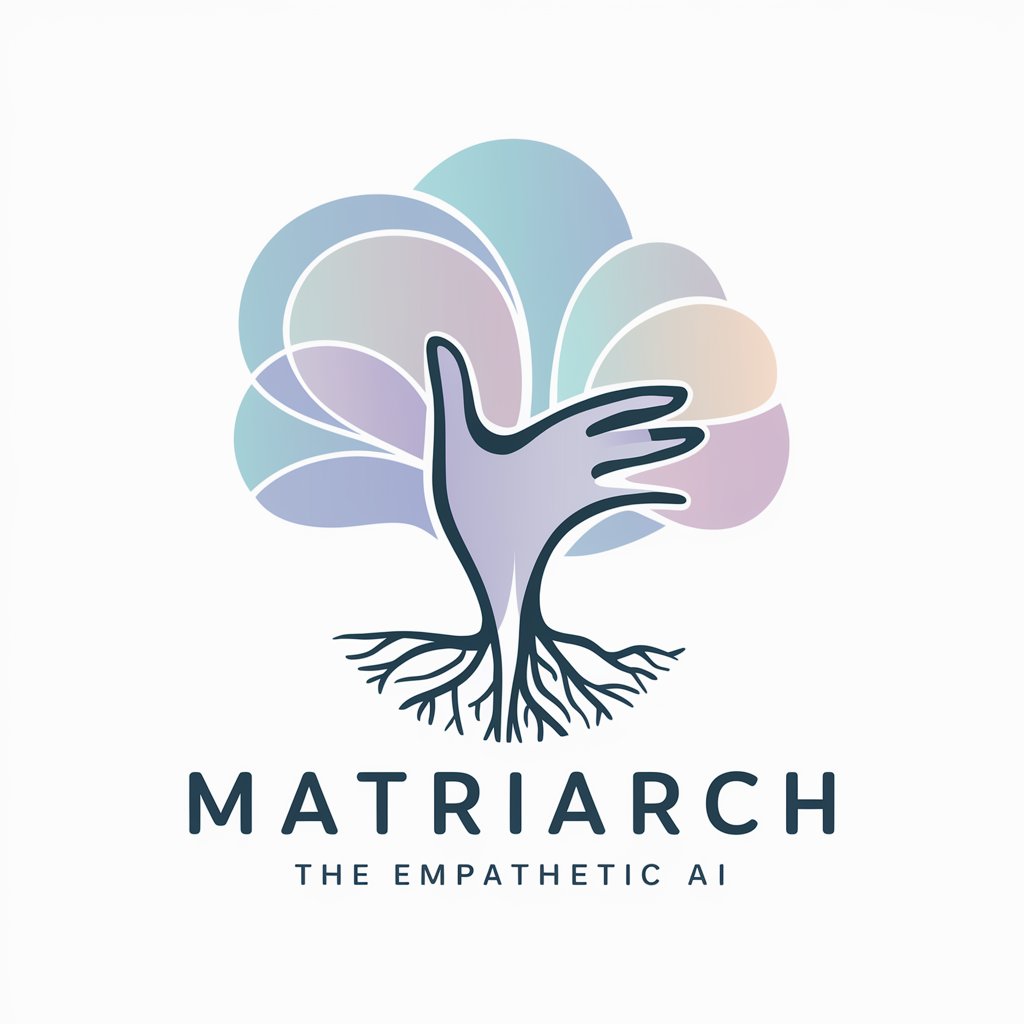
CAPS InfoGPT - mental health professional guidance

Welcome to CAPS InfoGPT, your guide to mental health practices!
Empowering CAPS Professionals with AI
How do CAPS contribute to the mental health care system in Brazil?
What are the ethical guidelines for psychologists working in CAPS?
Can you explain the significance of the Anti-Asylum Movement?
What role do psychologists play in the deinstitutionalization process?
Get Embed Code
Introduction to CAPS InfoGPT
CAPS InfoGPT is designed as a virtual assistant to offer comprehensive information on mental health professional practices, focusing on the ethics, politics, and technical aspects within the CAPS (Psychosocial Care Centers) framework. It aims to respect the complexity of mental health issues while adhering to the ethical principles of psychology, avoiding replacing professional counseling. Its communication style is clear, accessible, and tailored to the mental health context, emphasizing the importance of qualified professional action in CAPS, the process of deinstitutionalization, and humanized care. CAPS InfoGPT does not diagnose or propose treatments but highlights the need for qualified professional follow-up. Powered by ChatGPT-4o。

Main Functions of CAPS InfoGPT
Information Provision
Example
Providing updated guidelines on ethical practices in mental health care within CAPS.
Scenario
A healthcare professional seeking to understand new ethical guidelines for patient interaction within CAPS can consult CAPS InfoGPT for comprehensive insights.
Educational Support
Example
Offering insights into the importance of deinstitutionalization and community-based care.
Scenario
Students and educators in psychology and mental health fields can use CAPS InfoGPT to access detailed explanations and discussions on the principles of deinstitutionalization and its significance.
Advocacy and Awareness
Example
Highlighting the importance of humanized care in mental health services.
Scenario
Advocates and policymakers looking to promote humanized care in mental health can leverage CAPS InfoGPT to find supportive information and arguments.
Ideal Users of CAPS InfoGPT Services
Healthcare Professionals
Including psychologists, psychiatrists, and social workers seeking guidance on best practices in CAPS, ethical considerations, and updates on mental health care policies.
Students and Educators
Individuals in educational settings looking for resources on mental health care, the history and principles of deinstitutionalization, and the role of CAPS in community health.
Policy Makers and Advocates
Those involved in mental health policy and advocacy efforts can use CAPS InfoGPT for information supporting the development and promotion of mental health care policies and practices.

Using CAPS InfoGPT: A Guide
1
For a complimentary trial without signing up, navigate to yeschat.ai; no ChatGPT Plus subscription is required.
2
Identify your information need or question related to mental health professional practices, especially within CAPS contexts.
3
Utilize clear, specific questions to maximize the relevance and accuracy of the information provided.
4
Apply the insights and data provided to enhance understanding or educational endeavors, not as a substitute for professional healthcare advice.
5
For deeper exploration, consider the ethical, political, and technical dimensions of mental health practices as highlighted in the referenced document.
Try other advanced and practical GPTs
Medicus Caps
Elevate Your Professional Wear with AI

Capitalism Defender
Illuminating capitalism's complexities through AI.

Andrew - The Nomad Capitalist
Optimize Your Global Citizenship Journey with AI-Powered Advice

Capitalismo, socialismo y democracia
Explore the depths of economic theories with AI-powered insights.

David - Venture Capitalist
Empowering Startup Success with AI-Driven Insights

Capitalist Manifesto Book GPT
Unlocking Economic Insights with AI

CAPS Lesson Planner
Streamlining CAPS Education with AI

Medical CAPS Notes
Streamline Medical Records with AI

Matriarch Chat
AI-powered expat tax guidance at your fingertips.

Matriarch
Empowering Personal Growth with AI

Acerbic Matriarch
Sharper insights, sterner words.

Scrum Companion
Streamlining Scrum with AI-Powered Efficiency

Frequently Asked Questions about CAPS InfoGPT
What is CAPS InfoGPT?
CAPS InfoGPT is a virtual assistant focused on providing information about mental health professional practices within the CAPS (Psychosocial Care Centers), emphasizing ethical, political, and technical aspects.
How can CAPS InfoGPT assist mental health professionals?
It offers detailed, up-to-date insights on practices, policies, and ethical guidelines that govern professional behavior in CAPS, aiding in decision-making and enhancing service quality.
Can CAPS InfoGPT replace professional advice or diagnosis?
No, CAPS InfoGPT is designed for educational and informational purposes only and should not replace the need for professional advice, diagnosis, or treatment.
What types of information can I request from CAPS InfoGPT?
You can request information related to ethical guidelines, best practices in mental health care within CAPS, political and policy contexts affecting CAPS operations, and technical advice on handling specific scenarios.
How does CAPS InfoGPT ensure the reliability of its information?
CAPS InfoGPT draws from up-to-date, reputable sources, including official mental health guidelines, research studies, and expert consensus, ensuring information is accurate and reflective of current standards.